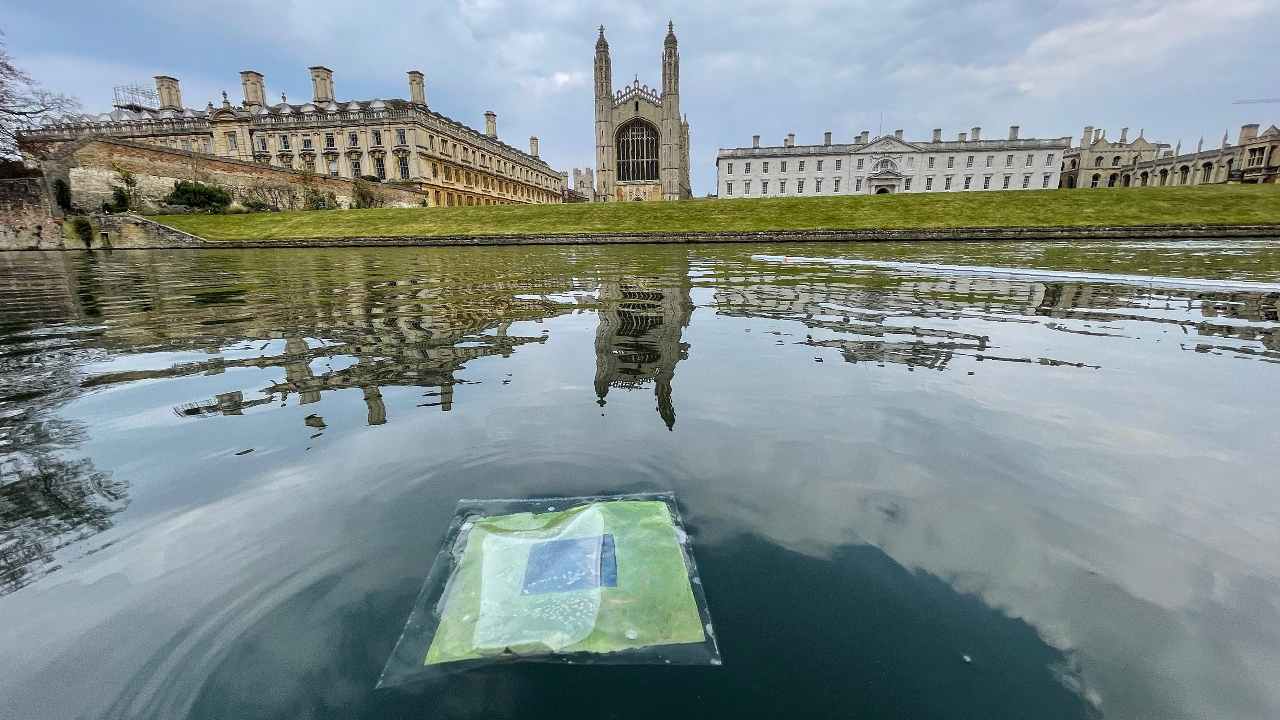Researchers at the University of Cambridge have developed ultra-thin and flexible “artificial leaves” that generate clean fuel from sunlight and water. The devices are inspired by the process by which plants convert sunlight into food through photosynthesis. Because these are autonomous devices light enough to float, they could be used to generate a sustainable alternative to petrol at scale without taking up space on land.
According to a university press release, this is the first time a clean fuel has been produced in water, and the technology could potentially be used in polluted waterways, ports or even the ocean to help reduce the global shipping industry’s reliance on fossil fuels. The research is published in the journal Nature.
Lightweight leaves have already been tested outside the River Cam and are known to convert sunlight into fuel as efficiently as plant leaves. Experiments have shown that artificial leaves can split water into hydrogen and oxygen or reduce carbon dioxide to syngas. Syngas or synthetic gas is a mixture of carbon monoxide and hydrogen that can be used as fuel.
Over the years, renewable energy technologies such as wind and solar have become much cheaper and more accessible. But for many industries, they remain an impractical solution. Shipping is one such industry. According to a 2018 UNCTAD report, more than 80% of global trade is facilitated by cargo ships powered by fossil fuels.
“We wanted to see how far we can trim down the materials these devices use, while not affecting their performance. If we can trim the materials down far enough that they’re light enough to float, then it opens up whole new ways that these artificial leaves could be used,” said Reisner, in a university press statement.
University professor and co-lead author of the study, Erwin Reisner and his research team have been working for several years to solve this problem. Reisner and his team focused on developing sustainable gasoline petrol based on the principles of photosynthesis. The team developed the first version of artificial leaves that produce syngas in 2019.





























